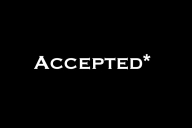You have /5 articles left.
Sign up for a free account or log in.

FatCamera/Istock/Getty Images Plus
A growing proportion of international graduate students want to stay and work in North America after they graduate. And, in fact, such students bring diverse experiences and backgrounds that help strengthen the workforce, as well as contribute to local, state and national economies. Yet because they are seen as “foreign,” “noncitizens” and “temporary residents,” they frequently struggle to find jobs and pursue the careers of their choice.
It can be hard, of course, for even North American graduate students to land jobs after obtaining their degrees but the challenges are significantly heightened for international students—they are in a new environment and culture and must confront many obstacles that their native-born peers do not. We know that firsthand: We both were international graduate students in North America and both had to struggle, not only with language barriers, academic difficulties and transitioning into a new culture, but also in pursuing a successful and fruitful career path.
One of us, Merab, went to the United States for her bachelor’s degree as an international student. She then completed her master’s degree from a Canadian institution. She faced many hurdles in finding employment opportunities as an international student and achieving her aspirations for career development. She ultimately found her motivation and passion in helping other students in higher education obtain academic and career success. The other of us, Sherry, is Chinese-Canadian, and ventured to the United States for postsecondary studies. She, too, was able to overcome challenges of new environments and leverage her cultural experience in the three countries to support Northeastern University students in both the Boston and Vancouver global campuses.
In this article, we briefly outline a few of the specific challenges that international students confront, as well as some particular moves—networking, developing your personal brand, enhancing your soft skills and communicating more effectively—that can help you land the job and embark on the career you are seeking. We will also highlight some helpful resources and tools.
Common Challenges
International students must grapple with a host of challenges while in graduate school but if higher education institutions have proper systems in place—such as faculty, staff and institutional support services specifically targeted to international students—then it is a bit easier for those students to cope with the difficulties and challenges and succeed in academe.
But international students often don’t have much, if any, support once they’ve graduated, as they attempt to navigate their career paths, even though they are smart and talented and their diverse experiences and backgrounds can bring significant value to workplaces. In fact, they are often penalized when it comes to obtaining a job. For instance, potential employers can avoid even giving them an interview, let alone a position, so they won’t have to provide sponsorship in the future. Thus, many students who want to gain career experiences in North America may be able to find employment through a work permit, but it may not be in the field or career they want, or their salaries might be lower than those of their North American peers.
International students must grapple with other obstacles. For instance, when Sherry first moved to the United States, she struggled to establish a strong professional network. Without such a network, she felt unsure how to pursue a career in higher education. The lack of connections made it difficult for her to learn about promising positions that were becoming available on the job market.
Merab also experienced difficulties finding work, as she had no social circle, professional network group, mentors or peers for any support and guidance. Not knowing the labor market and trends, she felt insecure about her career. She didn’t know that the career culture is very different in North America, where self-promotion is valued more than in other countries, for instance.
A Few Recommendations
So what can you as an international student do to improve your odds of success? We obviously can’t change employers’ concerns about having to sponsor an international graduate as an employee or about other visa-related issues. But we can help you, as such a graduate, become a better, more attractive job candidate. Here are just a few suggestions.
Focus on networking and creating a personal brand. This is important for every student, but it is especially so for international students who need to build professional connections, increase visibility to employers and access hidden opportunities. As a first step, recognize the value of social media and develop an online presence through LinkedIn, as it is a tool you can use to connect with other professionals and peers with similar interests. This will give you an opportunity to expand your network as well. By being active on social media and by engaging within that broadening network, you will be able to create and communicate a personal brand that reflects your skills, values and work ethic.
Setting up a personal website can also be a great way to showcase your academic achievements, personal qualities and career readiness for peers and prospective employers. Typically, a personal website would have sections such as a biography, résumé/CV, as well as some previously involved projects. Having multilingual features would also ensure accessibility and promote cultural diversity.
In addition, you should be sure to join professional organizations where you can take advantage of opportunities for networking, meeting mentors and attending conferences offering professional development and training. Being a part of communities from your own discipline is vital for both professional and personal growth.
Develop your soft skills. You don’t need just expertise and hard skills in subject-matter areas to succeed on the job market—soft skills are also essential in order to effectively navigate it. Soft skills include leadership capabilities, conflict resolution skills, self-motivation and the ability to work under pressure, to name just a few. Coming from diverse backgrounds, international students may already have soft skills that are very applicable to their job search in North America, such as the ability to adapt to new cultures, communicate effectively in diverse settings, navigate unfamiliar environments and provide a level of cultural intelligence that is highly valued in today’s globalized workforce. So, as you embark on a job search as an international student, make sure to do a thorough self-assessment of all you already have to offer an employer.
You should also make an effort to enhance your soft skills or gain new ones. For instance, joining a Toastmaster’s club can be a great opportunity to further hone soft skills, especially in practicing public speaking—a highly valuable skill in the workplace. Additionally, a Toastmaster’s club provides a distinct chance for you to improve your public speaking skills and develop a network of support. At a Toastmaster’s club, you can also practice and receive feedback on your elevator pitch to potential employers. Having a memorable and concise pitch will be invaluable at networking events and during interviews.
Improve your ability to effectively communicate. You must learn to communicate effectively—and not just verbally. Having professional email etiquette is crucial. Clear, concise and well-structured emails convey your professionalism and enhance your overall image.
In addition, while you will want to say the right things in interviews and networking events, being an active listener is equally important. By attentively absorbing information, asking relevant questions and providing thoughtful responses, you will be able to have productive conversations and build rapport with others.
You should also learn how to further engage by recognizing and providing nonverbal cues, such as making eye contact and presenting open body language. In combination, these communication skills create a holistic approach to effective interaction, enabling you to navigate the complexities of the professional world with poise and proficiency.
Some Helpful Resources
It is important as an international student to be equipped with the right tools and resources to enhance your personal and professional development. As we mentioned, you can find some of those on LinkedIn, such as:
- LinkedIn Learning on Career Development. LinkedIn Learning offers a series of great self-paced courses on career development that teach skills on growing your network, interviewing and other key career skills.
- LinkedIn Learning Course: Creating Your Own Brand. A part of the overall LinkedIn Learning collection on career development, this course specifically guides individuals to identify and align their personal branding. It also offers the option of obtaining a certificate of completion.
- Top 12 Ways to Get More Connections on LinkedIn and Grow Your Network. Personal branding strategist Vandana Nanda shares 12 insightful tips on how to expand your network and increase connections.
Several other resources we have found to be valuable include:
- Power Ties: A Job in the United States. Author Dan Beaudry shares a detailed step-by-step approach on the job search process for international students. The author also describes the “hidden job market” thoroughly.
- Inside Higher Ed’s Carpe Careers column. The Graduate Career Consortium (GCC)’s Carpe Careers column offers valuable guidance from a wide variety of campus experts on transitioning from grad school to the workforce, and expediently navigating your career journey.
In conclusion, international students pursue their education abroad with a hope to gain better employment opportunities and a better future. And they have much that they can offer employers in their new country. But before they graduate and enter the job market, many international students aren’t even aware of specific challenges that they may have to grapple with. If you are one of those students, we hope this essay has alerted you to such challenges and suggested a few ways you can best meet them.








